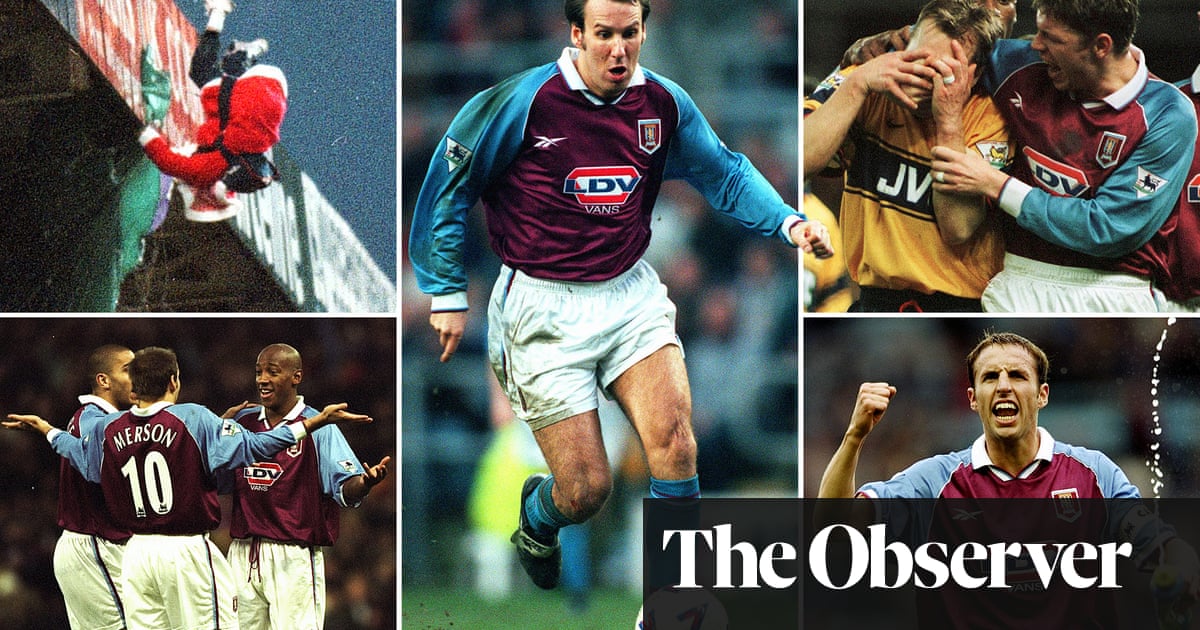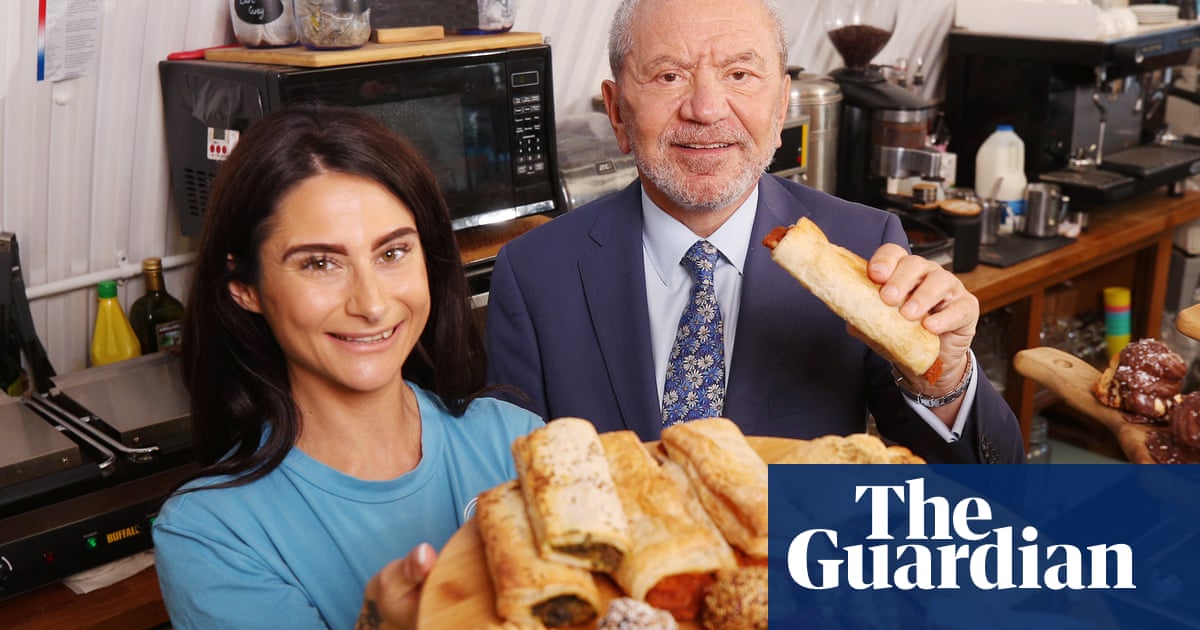
“Everything about me being here is improbable,” says Frédéric Guilbert, the French defender who has won rave reviews since arriving at Aston Villa in the summer. As he chats at Villa’s training ground in the run-up to Saturday’s Premier League joust with Liverpool, the right-back who is likely to be tasked with subduing Sadio Mané, Mohamed Salah and co describes how he got to this point despite – and partly because of – a series of mishaps and misjudgments.
But first let us address the fact that in one respect there is nothing surprising about this 24-year-old taking on the European champions. He, after all, has conquered the continent himself. Any analyst could tell you that. He has been a favourite of statisticians since the 2017-18 season when, as a player at Caen, he won more tackles than any other defender in the five main European leagues and ranked second for interceptions. He has been Villa’s most prolific tackler and interceptor despite missing the first two games. Those qualities, along with his forward dashes and crosses, are what make him so exciting to watch.
“I’m not big and strong so I have to be able to anticipate,” he says by way of explanation for his exceptional reading of play. But what accounts for his combativeness in one-on-one duels? Does it have anything to do with where he was born: Valognes, a Normandy town that was awarded the Croix de Guerre after the second world war because of the extraordinary valour of its residents?
He smiles at that notion. “It’s mainly to do with what I’ve been through myself,” he says. “I left home when I was 11 to join Caen’s academy. I spent six years there and then they said they didn’t want to keep me.” One coach said it very forcefully.
“He said: ‘As far as I’m concerned, you’ll never be a top-flight player, nor even a second division player. Maybe third-rate, at best.’ That was tough. Caen was the club I loved, the place I grew up.”
He got picked up by Cherbourg, a fourth-tier club a stone’s throw from Valognes. “One day we played against Bordeaux’s reserves. Their manager was Patrick Battiston, the former France international.” Arsène Wenger once said that Battiston was the finest tackler he had seen. Battiston saw something he liked in Guilbert. “He took me to Bordeaux. Within three months I was his reserve team captain. Within six months I was part of the first-team squad. Then Caen called me. ‘We made a mistake, would you come back?’ I went back [on loan], then they paid to make the transfer permanent. I got this character because I always had that idea of proving to people they were wrong about me. Going back to Caen closed the circle. It’s a nice story.”
His performances at Caen attracted English clubs. He turned down Brighton because he did not feel ready to move. Then, last season, he found out Villa were tracking him. “Suso [Jesús García Pitarch, Villa’s sporting director] came to watch a few matches and so did Olivier Monterrubio [Villa’s scout in France].” In January Villa sent their biggest delegation yet, with Suso and Monterrubio joined by the manager, Dean Smith, to watch Caen host Marseille.
How did that go? “I got a red card,” says Guilbert, smiling and shaking his head at the memory. The first yellow was for dissent, the second, just after half-time, for catching a player from behind. Guilbert feared he had blown his chance with Villa. “I asked my agent what was happening and he said: ‘It’s become complicated.’”
But Villa came again and on the last day of the January transfer window signed him for a reported £5m and loaned him back to Caen until the end of the season. “At the time Villa were 10th in the Championship and everybody said to me: ‘Why are you joining them?’ But I said I was not joining a league, I was joining Aston Villa.” He widens his eyes as if to show the magnitude of the club.
Then came a strange week in May. On the 24th he walked off the pitch in tears as a home defeat by Bordeaux condemned Caen to relegation from Ligue 1. Three days later he was in the stands at Wembley to watch his new club win promotion to the Premier League. “Villa had invited me and my partner and of course I was happy we went up but, on the other hand, it was hard to celebrate. I had been totally invested with Caen and had this feeling of a job not done. I was with them for eight or nine years overall so you can’t forget about going down so quickly. I popped into the [Villa] players’ victory party for 15-20 minutes to congratulate them and then I went home and started preparing for this season.”
His preparations have paid off. Since his debut in August he has been excellent, solid defensively and a regular threat going forward. Even in last Saturday’s 3-0 defeat at Manchester City he stood out. There he came up against the most challenging opponent he has faced to date. “It’s hard to say which is stronger between Paris Saint-Germain and Manchester City but I would say Raheem Sterling presents the most challenges to a right-back. [Kylian] Mbappé likes to run in behind and Neymar goes infield a lot but Sterling wants you one-on-one.”
Next up are Mané and Salah. “You think you know these players’ strengths and weaknesses because you’ve seen them in action so many times. But watching them and playing against them are completely different. The most important thing is concentration. Against them things can change in an instant. We were good at City for long periods but lost because our concentration lapsed momentarily. Now we have a chance to show we have learned from that.”
Speaking of learning lessons, where is that coach who told Guilbert he was third-rate at best? “Retired? Unemployed? I don’t know,” says Guilbert. “I hope he has a TV. Actually, I’ll keep a seat for him at Villa Park. I’m grateful to him.” The Guardian Sport












